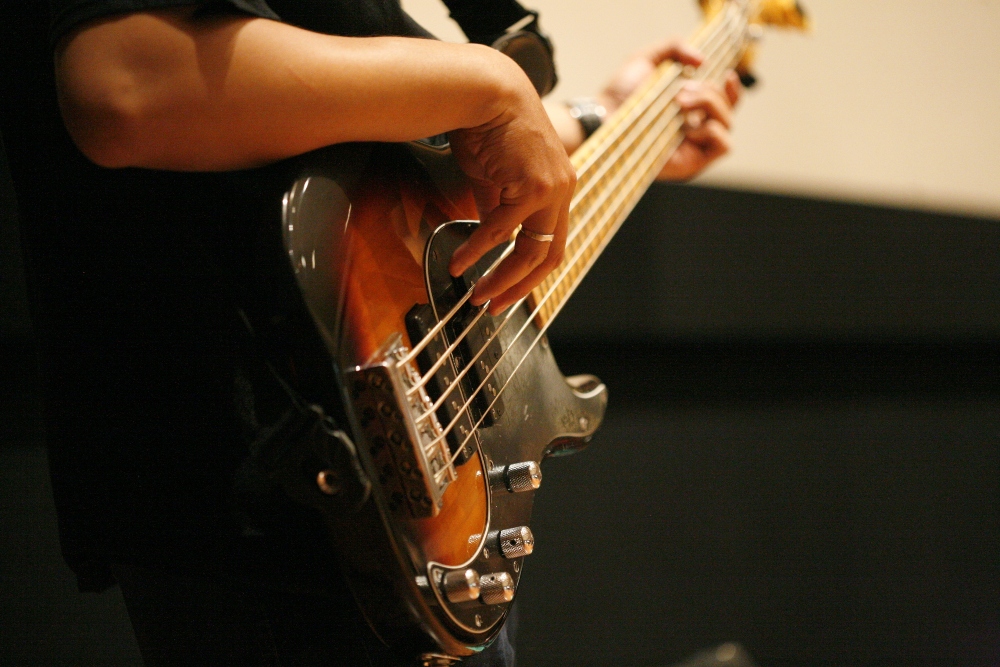IMAGE SOURCE: ENVATO
Learning to play the bass is an exciting journey. Whether you have musical experience or this is your first instrument, playing the bass for the first time is incredible. Read on for the best tips for learning how to play the bass as a first-timer.
Start Warming Up
Learning to play an instrument like the bass takes time. While most beginners hope to master the instrument as soon as possible, mastering this instrument takes time. As you start practicing to play bass, don’t forget the first part of bass playing: warming up. The warm-up period for bass playing helps you ward off negative effects like sore fingers or tendinitis.
To start warming up to play the bass, it’s best to play slowly for up to an hour. While you’ll eventually be able to play at a faster pace, starting off slow is the best way to build up to a faster pace.
Use Your Fretboard
As you start learning to play the bass, make sure you’re using the fretboard properly. The bass is a logical instrument in that the fretboard is designed to help you better understand your finger placements. Whether you’re learning to read music or studying tabs, using the fretboard as a visual aid to study the placements of the notes and your fingers will help you learn. As you get into the habit of playing these notes, you’ll soon develop muscle memory that will allow you to play more confidently.
Keep Practicing
Practice will certainly help you perfect your craft. Dedicating daily time to your bass playing improvement will have a significant effect on your playing. Whether it’s an hour or more, spending a dedicated amount of time each day to practice is an important part of learning to play the bass.
Learn From the Best
Learning how to play the bass on your own is possible. While many people do teach themselves how to play the bass, it can be challenging to learn the ins and outs of the instrument without a teacher present. If you hope to improve your bass playing skills, consider learning from a professional. Attending courses from institutions like Broadway school will help you refine your approach to bass playing.
As a beginner, trying to navigate playing an instrument can be overwhelming. Working with a teacher will help you develop a curriculum that fits your skill level and schedule.
Always Stay Motivated
Just as it’s important to find times to practice regularly, you must be able to stay motivated. When learning to do something new, it’s easy to get disappointed or distracted. While you may grow frustrated with challenges that come your way, it’s important to always stay motivated. Though you may not master the bass today, you’re further than you were the day before.
Remember that playing your instrument isn’t something you should feel pressured about. Throughout your life, you’ll continue to grow and learn as a musician and bass player. Be patient with yourself as you explore your new instrument.
Find Role Models
It can be difficult to stay positive when starting a daunting new hobby. Wherever you are in your bass-playing journey, it’s important to find heroes to look up to. If can’t think of anyone you know personally, consider the best bassists in your favorite bands. With these bass heroes to look up to, you’ll have role models that you can learn from and find encouragement in.
As you look up to your role models, don’t forget to learn from and study them as well. Research exactly what your favorite bassist does as they practice, play, and record songs. As you learn more about them, you’ll start to incorporate what you’ve watched into your practice as well.
Playing the bass well starts with the decision to keep learning and keep practicing. As you begin your bass playing journey, be sure to keep this guide in mind. With hard work, guidance, and a lot of practice, you’ll be a pro bass player in no time.




